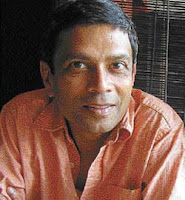Born in Dhaka, Mahmud Rahman came of age during the creation of Bangladesh...
During the 1971 war, he was a refugee in Calcutta. In his adult life, he has lived in several US cities. His fiction and non-fiction have been published in magazines and anthologies in the US, Britain, Pakistan, India and Bangladesh. He also translates Bangla fiction. In this interview, he speaks about his new collection of short stories, Killing The Water (Penguin). Excerpts from an interview:
When did you begin writing?
I wrote all along, ever since my schooldays. But I took up narrative prose only in the mid 90s.
How did major upheavals in your life affect you as a writer?
In the earlier years, there was great upheaval around and inside me. In my 20s, after the war and subsequent disappointment with the way things turned out in independent Bangladesh, I was an angry young man. I revisited some of those times while writing my stories through both the filter of time and what I’d like to believe is a greater thoughtfulness. I strive to reflect complexity. Fiction can’t provide answers, but it can convey a sense of people living in worlds of uneasy choices.
Where do you find inspiration?
First, in fragments from memory. The title story ‘Killing the Water’ plays with myth-making from events in my childhood. Second, I enjoy drawing out people to share stories. ‘City Shoes in the Village’ came from an anecdote my father told me. While living in Calcutta in the 30s, he had built a motorboat and navigated it to his home in Chandpur. I tried to imagine what might have happened when someone like him without close links with either his village home or his relatives returned home — in order to get a sense of his alienation. This story also drew in emotions and reactions I myself felt when I first returned home to Dhaka after 10 years in the US. Third, I tend to take mental snapshots and retain striking images. The story ‘Yuralda’ emerged from an image of a woman I saw once on a dance floor, swaying by herself, dismissing all who approached her.
What have been your best and worst experiences as a writer?
It’s wonderful when a reader “gets” the story you meant to tell; when reading the story surprises and awes. I also feel delighted when a story comes together. Worst experiences? A work that refused to come together, one that defeated me.
Full interview here Deccan Herald

No comments:
Post a Comment